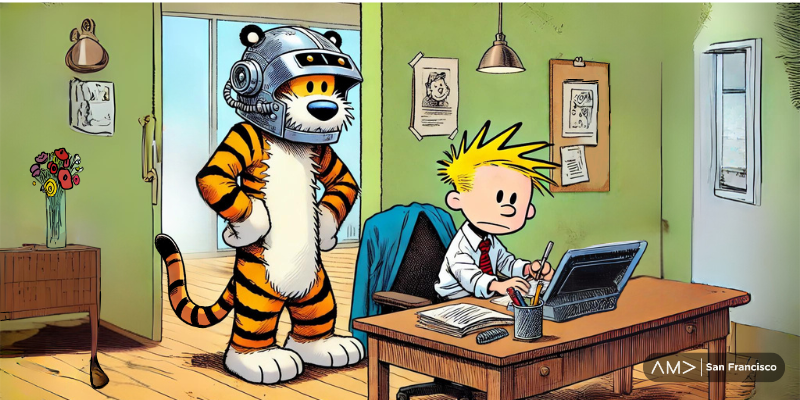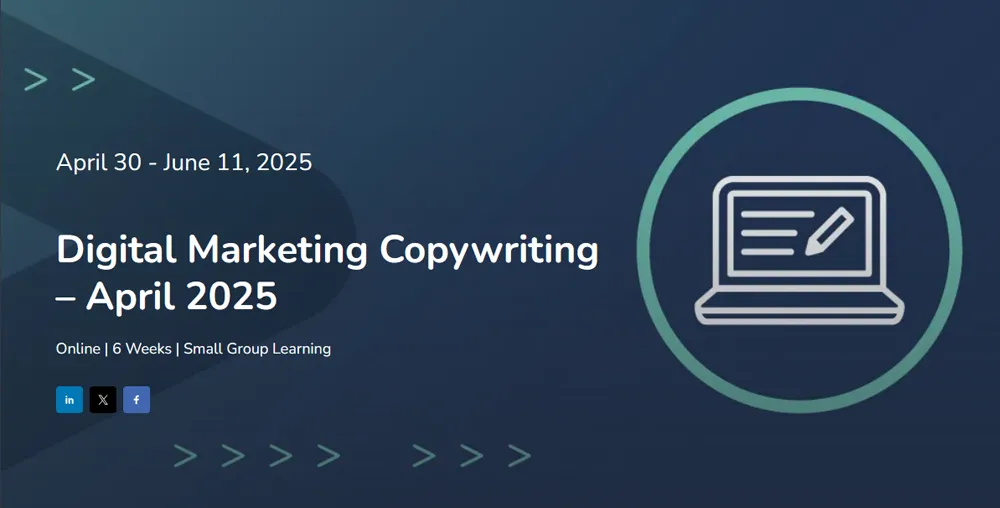AI is transforming marketing, and it’s just getting started. With large language models (LLMs) now available at scale, rapid improvements are inevitable. The question isn’t if AI will affect your job, but how much of it AI will take. Right now, it automates routine tasks and speeds up workflows, giving marketers more time for creativity, strategy, and connecting with people.
AI may be advancing fast, but its role is to assist, not replace. Marketers must learn to use AI as a partner, not fear it as a rival.
AI Assists
Melinda Byerley, CEO of Fiddlehead Marketing, sees the potential clearly. “We’re moving toward a reality where AI can handle much of the routine work, allowing us to focus on the creative and strategic tasks that really matter.” Her vision isn’t about marketing teams disappearing. It’s about using AI to take over repetitive tasks, so human expertise shines where it’s needed most.
AI tools like GPT-4 can draft blogs, summarize notes, and analyze data in minutes. While AI speeds things up, it doesn’t eliminate the need for marketers. It handles the heavy lifting, but human insight still shapes the final touch.
Marketing is Evolving, Not Ending
If AI is coming for anything, it’s the repetitive parts of your job. Tasks like drafting content, organizing data, or performing initial research can be automated, freeing time for high-value work. The goal, as Melinda explains, is to “replace yourself in the tasks that don’t need your unique skills,” not eliminate the marketer’s role.
Marketers who embrace AI will work smarter. The real opportunity lies in rethinking workflows, using AI to streamline processes and enhance productivity while keeping creativity at the forefront.
AI Accelerates Learning Curves
AI isn’t just automating tasks; it’s also speeding up learning. For marketers, this means gaining insights faster and making informed decisions. By quickly analyzing campaign data, customer feedback, or market trends, AI can highlight what works and what doesn’t, allowing for real-time adjustments.
Anya Cheng, Taelor.ai CEO, emphasizes, “AI helps marketers build on their understanding of consumers, allowing them to create strategies that resonate deeply.” AI’s role isn’t just about doing things faster—it’s about helping marketers learn and adapt more effectively.
Creativity Needs People
Some argue that AI could eventually match human creativity, but today it assists more than it innovates. AI can follow patterns and generate ideas, but it doesn’t understand culture, context, or emotion. Creativity requires these elements, which are beyond AI’s reach.
Natalie Lambert, Founder of GenEdge Consulting, agrees: “I see AI as a brainstorming partner, not a replacement. It pushes us to think outside the box, but we still shape the final outcome.” The real magic happens when AI assists, freeing marketers to explore new ideas and strategic directions.
![]()
Using AI as a thought partner is a core teaching of Section, our Gold Sponsor – and it’s especially helpful for gut checking marketing strategy, coming up with innovative campaigns, and getting granular on customer behavior. Their AI for Marketers workshop is a 2 hour deep dive on these strategies, and you can join for 20% with code AMASF20. Or if you’re not ready to dig into AI strategy yet, start with their AI Crash Course – same code applies!
Keeping AI’s Output Human
While AI can draft content, it often misses the nuances that make messages feel human. Marketers need to focus on refining AI’s output to ensure it connects emotionally. This means adding the context, tone, and storytelling elements that resonate with audiences.
Melinda Byerley emphasizes, “We should use AI to take on routine work, but the final content should still reflect human creativity.” Marketers should see AI as a starting point, not the final word.
AI for Scale, Not Substitution
The true power of AI lies in its ability to scale efforts, not in replacing marketers. It can help amplify the impact of campaigns by reaching broader audiences and personalizing messages at scale. But marketers must remain in control, directing AI’s capabilities towards goals that matter.
Monifa Porter, SVP of Shift AI, captures this balance well: “AI is a powerful tool, but it’s just that—a tool. Without the right guidance, it can become a liability.” The responsibility lies in using AI to enhance marketing strategies while maintaining the human touch.
AI Isn’t Replacing You
We’re at the start of a new era in marketing. LLMs are advancing fast, but AI’s role isn’t to replace marketers. It’s to automate tasks that don’t need human insight, letting marketers focus on work that does. The future will be about finding the balance between AI’s efficiency and the human touch.
Melinda’s approach makes sense: use AI to handle repetitive tasks, and reclaim your time for strategy, creativity, and building relationships. The challenge isn’t holding onto old methods; it’s embracing the shift and using AI to enhance your skills.
Embrace AI’s Potential
Use AI to automate routine tasks, but refine the output to ensure it resonates. The time saved can be invested in strategic thinking and innovation. Prepare for continuous improvements in AI, and adapt as it evolves.
AI may be changing marketing, but it’s not taking over. Marketers who embrace AI’s potential will lead the way. The future isn’t about choosing between humans and AI; it’s about combining strengths to redefine what’s possible.
Get your tickets to our Humans in the Loop panel on October 22, 6-9 PM PDT at Reddit HQ to learn how AI is transforming marketing and what marketers need to know to stay ahead.
Featuring the following AI experts:
- Melinda Byerley, CEO of Fiddlehead Marketing (moderator)
- Anya Cheng, Founder & CEO Taelor.ai, Lecturer Northwestern University
- Natalie Lambert, Founder of GenEdge Consulting
- Monifa Porter, SVP of Shift AI, Mach49







Comments are closed.